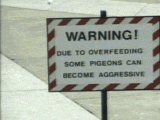Mark CMG
Creative Mountain Games
Dannyalcatraz said:(. . .) if its not on the master list, the answer is no.
Words to live by.
Dannyalcatraz said:(. . .) if its not on the master list, the answer is no.
evildmguy said:What I am talking about, in terms of scaling, is that if we take two fighters, equip them exactly the same at 1st, 5th, 10th and 15th levels and have them fight, for some reason, the weapons are less effective as a percentage of damage than what they used to do.
I get the fact that skill of avoiding damage is built into the levels, hit points and AC of DND. I understand that is how DND has chosen to model that. I just find it too bad that the attack roll means less than the bonuses at higher levels. (I think it was Wyatt? who said that at higher levels, the modifier is more important than the roll, but at lower levels, the roll is more important.) It does show that the character is more skilled. I can't argue with that. I just don't like that other things are less effective for no other reasons.
SteveC said:You know, I'm always surprised when this thread makes an appearance, because I just don't see what's so complex about AoO's. I mean here's the list:
1. Moving through an opponent's threatened area.
2. Taking a non-combat action in a threatened area or in the same turn as you leave one with a move action.
3. Taking a specialized combat action in a threatened area without the appropriate feat.
Steve
GoodKingJayIII said:I see your point and even agree with you (though not on the "bonuses more important than rolls at high levels"). I think the game is written to play that way, so if you're irked by that particular ruleset I can see why you'd look for something else. You can't just fiddle with base weapon damage without reworking a huge chunk of the entire system.
But this has sort of moved away from the whole AoO topic we had going before, and I'm honestly not even sure how we got here.
evildmguy said:Btw, it isn't my quote but a designer at WotC who said that the bonus is more important at higher levels. I just can't find it. Not sure who said it or where it was. Ah, well.
evildmguy said:From levels 1 - x, let's call it 5 or 6, the attempt to get past several rows of mooks to get to the bad guy has failed. Suddenly, the player sees that his character has enough hit points to make it and does so. Yet, every time before this, the character didn't attempt this, and now they suddenly do. What allowed that first act? What allowed the first attempt? In my opinion, it is metagaming.
I don't know why you felt the need to be rude and insulting.
Can you see a Celt getting past a Roman army line to attack the general in the back?
Something that allows the guards to guard.
We aren't talking about a definite, trainable and measureable skill. We are talking about a body's ability to take damage.
JRRNeiklot said:I never said you'd run past the guy with the axe. In fact, I stated numerous times that in my game, we have rules that stop this. You've done nothing but insult me and auote me out of context this entire thread. I'll not bother replying to your drivel any more. Welcome to my ignore list.
Indeed. Clearly I'm not the only one noticing either.Asmo said:What is that smell? Ah yes, it´s the smell of perm. banning!
Raven Crowking said:No, because it has surprise.

